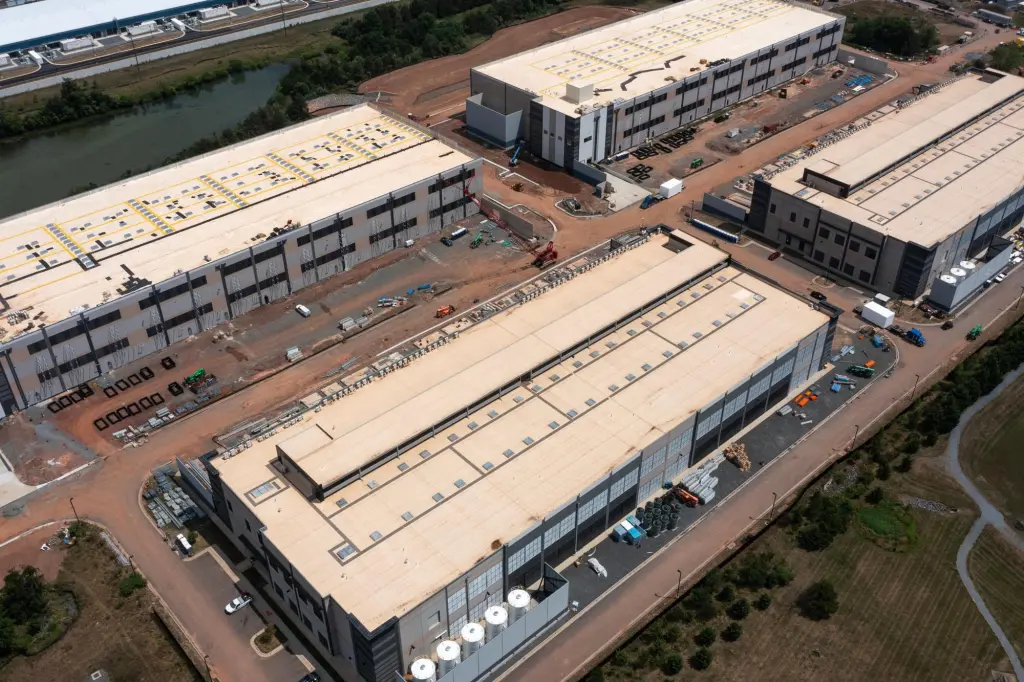Copyright Norfolk Virginian-Pilot

As home to an impressive — and alarming — one-third of the world’s data centers, Virginia urgently needs proper oversight and regulation to prevent the economic benefits from being short-circuited by rising energy demand and costs, noise and other unwanted outcomes. In January, the incoming governor and House of Delegates will need to join the state Senate in resuming work left unfinished earlier this year. At least 33 bills were introduced in this year’s legislative session to regulate the rapidly growing industry, according to an analysis by Inside Climate News, but little was accomplished. Of those bills, only one substantive proposal passed and was signed by Gov. Glenn Youngkin — a measure enabling nonprofit electric cooperatives to set up affiliates to provide power and set rates separate from ordinary users. But that helps only about 700,000 customers of co-ops, leaving the vast majority of Virginia residents vulnerable to higher rates to subsidize energy costs for data centers run by Google, Amazon and other wealthy companies. At current growth rates, the industry could double the state’s energy demands in 10 years and triple demands by 2040, according to a 2024 study conducted by the Joint Legislative Audit and Review Commission (JLARC) for the General Assembly. Additionally, data-center developers told Dominion Energy last year that its upcoming projects would require 40 gigawatts of electricity, or quadruple the amount of energy provided to Virginia households today, Inside Climate News reported. Obviously, that’s unsustainable. The industry is a boon to Virginia in many ways, contributing $9.1 billion in gross domestic product, 74,000 jobs (mostly in short-term construction) and $5.5 billion in labor income. Localities profit from the tax revenue, too, and of course, we all like to use our cell phones, laptops and desktop computers — each generating data that joins the enormous amounts flowing from business and industry. Three other measures from this year’s session were signed into law by the governor, but all underwent dental surgery and emerged nearly toothless before reaching his desk. Substantive measures to protect ordinary ratepayers from bearing the cost of power for data centers languished, and two bills requiring developers to disclose all water and power usage on proposed data centers died. Two-thirds of the data center bills never made it out of committee, according to the Inside Climate News analysis. While some of that is part of the normal lawmaking process — not every bill is a pearl — the failure of the General Assembly to pass substantive measures is indicative of its uncertainty over how to best regulate the industry or, worse, a reluctance to do so. Inaction by the legislature will almost certainly result in crisis, leading to burdensome electricity rates for residential and smaller commercial customers and even power shortages because of increased demand. Currently, regulation of the industry is largely left to localities, whose leaders focus on noise limits and siting but lack the ability to address larger issues like energy demands and rates. Del. Irene Shin, a Fairfax County Democrat, sounds a familiar theme in this debate — the state must protect the average family from footing the bill for “billion-dollar corporations, multi-billion-dollar corporations, that can absolutely afford to pay the cost of getting the energy that they need.” In its upcoming session, the General Assembly would be wise to pick up last year’s JLARC study and review its recommendations to help balance the growth of data centers with the needs of the general population. Among those suggestions was creating a separate utility customer class for data centers so their future energy needs are paid for by the industry itself. Other recommendations call for empowering localities to set maximum sound levels for data centers and requiring localities to consider water usage estimates in reviewing proposals. Appropriate regulation and oversight are possible without increasing the risk of losing the industry to other states. But unless lawmakers act soon, there is the risk Virginians will see data centers as an industry they no longer want.



